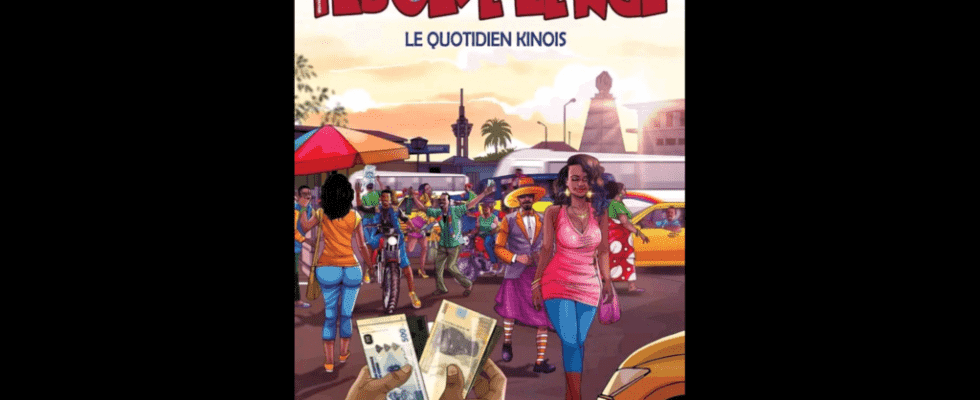The comic strip wants to restore the image of the Congolese capital Kinshasa. Cartoonists released a work entitled Mbok’elengi. Resourcefulness, crazy stories of couples or even road traffic… The work of a dozen authors reviews daily life in Kinshasa.
With our correspondent in Kinshasa, Pascal Mulegwa
” Mbok’elengi as if to say a good country, a good corner of the world, a pleasant corner “. Deep in the beautiful greenery of the Academy of Fine Arts, Crebix Mozalisi, one of the authors of this comic strip, leafs through the 54 pages of the book and stops at a scene involving a policeman. “ The gentleman comes forward, he asks the young people playing football : “why are you playing without a muffler?” »
Mola Boyika, another cartoonist participating in the collective work, was interested in women: “ For example, there, the couple had to go out for a party, the woman comes to exhibit her dresses, she asks her man, the man says : “it’s beautiful, I like it”but the woman says : “I find a serious problem with this and that”. She changes her dress. She changed dresses so much that the man was pissed and tired. The time passed, the woman put on the first dress »
The daily life of Kinshasa people
By collecting these many stories, Crebix Mozalisi and his fourteen colleagues, all young, want to give another narrative about Kinshasa and the country. “ Our main objective was to present Kinshasa in another way, not to distance people, not to create a kind of chill in the hearts or heads of those who are waiting to speak Kinshasa. Because usually when they talk about Kinshasa, it’s either the Kulunas [des gangs sévissant dans certains quartiers, NDLR], or stories that cause a lot of blood to flow. So we wanted to show that in the daily lives of Kinshasa people, there are also stories and adventures that make you laugh, that make you cry, it’s still a kind of rainbow, you find all the colors. »
A whole year for cartoonists to finalize the comic. It was printed overseas because of the high cost of printing domestically.
Comics are considered to be a medium that performs the three functions that any other medium can perform. This is how it is said that comics can help improve the image of the Democratic Republic of the Congo in public opinion, both nationally and internationally. Congolese cartoonists, like those in other African countries, still have the same problem. This is the problem of publishing houses and the problem of funding. If the Ministry of Culture can commit to supporting publishing, i.e. helping these young cartoonists to publish their works and making these works available to public libraries or school libraries, the state will have played a major role. These young people are tempted to make their own efforts to publish comics. They make them and they sell them for less. If the Congolese state commits to supporting publishing, comics could contribute to a change in mentality. I remember, when we were young, there was a magazine called “Young people for young people”. It was a magazine that was read in all corners of the Congo. And we discovered comics while reading “Young people for young people”.
Professor Hilaire Mbiye, specialist in African comics
►Also read: DRC: the challenges and difficulties of Congolese comics
